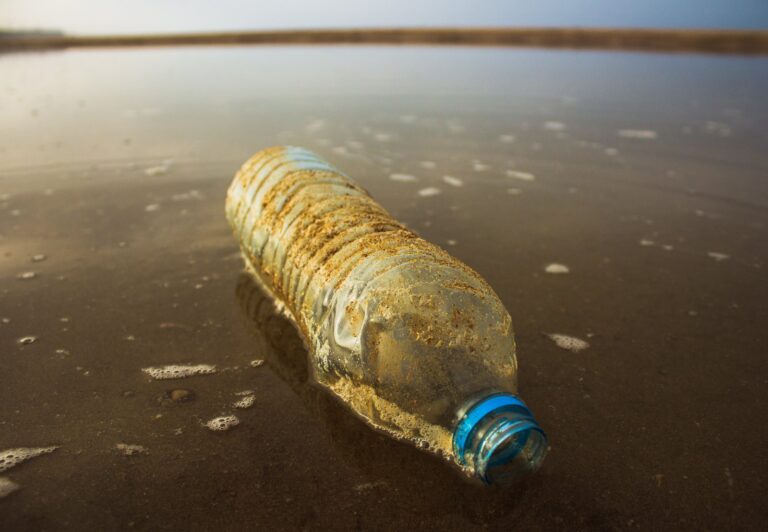Water is essential for human survival. It sustains life and is crucial for our overall well-being. However, with increasing concerns about water quality, it can be challenging to decide what kind to drink. One of the most debated topics regarding water quality is whether well water or bottled water is better. While there are pros and cons to both options, in this blog post, we’ll explore the benefits of well water and why it may be a better choice than bottled water. So, if you’re curious to learn which type of water is the best for you, keep reading!
Background information on well water and bottled water
Water is essential for our survival and staying hydrated is important for maintaining good health. When it comes to choosing our drinking water, there are several options available, including well water and bottled water. Well water refers to water that is sourced from a private well located on a property, while bottled water is commercially packaged and sold in stores.
Both well water and bottled water have their own set of advantages and disadvantages. Well water is often believed to be cleaner and more natural, as it is sourced directly from underground aquifers. It is not treated with any chemicals and is typically free from added substances. On the other hand, bottled water is convenient and readily available, making it a popular choice for those on the go.
To fully understand the differences and determine which is better, it is important to explore the composition, contaminants, health benefits, cost-effectiveness, eco-friendliness, convenience, and various risks associated with both types of water. By examining these factors, we can make informed decisions about the water we choose to drink.
Stay tuned as we delve deeper into the comparison between well water and bottled water, examining the facts and uncovering the truth behind these two sources of hydration.
Reasons for comparing the two types of water
There are several reasons why it’s important to compare well water and bottled water. First and foremost, understanding the composition of each type of water is crucial in determining their overall quality. By examining the contaminants present in each, we can assess the potential risks to our health. Additionally, cost-effectiveness and eco-friendliness play significant roles in the decision-making process. Well water tends to be more cost-effective as it doesn’t come with a monthly bill, while bottled water can be quite expensive in the long run. Moreover, considering convenience, consistent quality, availability, and the potential health, environmental, and safety risks associated with each type of water is essential. By weighing these factors, individuals can make an informed choice about which option best suits their needs and preferences.
Differences between well water and bottled water
A. Composition
Well water and bottled water have different compositions. Well water is sourced from underground aquifers and is typically untreated. It often contains minerals and nutrients, giving it a distinct taste. On the other hand, bottled water can come from various sources, including municipal water systems and natural springs. Some bottled water brands claim to have superior taste and higher mineral content. However, it’s important to note that not all bottled water is as pure as it seems. In fact, the U.S. government estimates that a significant percentage of bottled water sold is just tap water. Additionally, studies have shown that contaminants and bacteria can be found in bottled water. Overall, the composition of well water and bottled water differs, with well water being sourced naturally and bottled water being sourced from various sources.
B. Contaminants
Contaminants in both well water and bottled water are an important factor to consider when comparing the two. While it’s true that well water can sometimes contain minerals, iron bacteria, and other contaminants, the same can also be said for bottled water. In fact, studies have shown that some bottled water samples exceeded state or industry guidelines for bacteria. Additionally, it’s worth noting that a significant percentage of bottled water sold is actually just tap water taken from municipal water systems. This raises questions about the purity and quality of bottled water compared to well water. In terms of contaminants, both well water and bottled water have their own set of risks, making it crucial for consumers to be aware of the potential concerns associated with both options.
C. Health benefits
One of the key considerations when comparing well water and bottled water is the health benefits they offer. According to various studies, both types of water can provide positive health effects. Well water, in particular, is known to have a high mineral content, including important minerals like calcium, magnesium, and fluoride. These minerals play a crucial role in maintaining cardiovascular health, promoting bone health, and preventing dental issues.
On the other hand, bottled water often undergoes additional processes to enhance its mineral content, which can provide similar health benefits. However, it is important to note that the presence of minerals alone does not necessarily make one type of water healthier than the other. Many of these essential minerals can also be obtained through a balanced diet.
Ultimately, when considering health benefits, both well water and bottled water can contribute to overall hydration and provide important minerals. It is important to choose the option that aligns with your personal preferences and meets your specific needs.
Advantages of well water over bottled water
A. Cost-effectiveness
When it comes to cost-effectiveness, well water definitely has the upper hand. Unlike bottled water, which can be quite expensive, well water is essentially free once you have the well system in place. There are no monthly bills or unpredictable costs to worry about. You can even have your well water tested at a drinking water testing lab to ensure its quality and avoid wasting money on municipal tap water. Furthermore, by relying on your own well, you don’t have to rely on anyone else to bring you water or worry about stock shortages during emergencies. It’s a convenient and cost-effective solution that allows you to have access to clean and fresh water without breaking the bank.
B. Eco-friendliness
When considering the eco-friendliness of well water versus bottled water, there are a few key factors to consider. Firstly, the production and distribution of bottled water requires much more energy compared to well water. From treating and bottling to transportation and refrigeration, bottled water has a significant environmental impact. In fact, the production of plastic water bottles alone uses fossil fuels and contributes to global warming. Additionally, the majority of plastic water bottles are not recycled and end up in landfills or bodies of water. On the other hand, well water has a much lower environmental impact as it does not require disposable containers or extensive processing. Overall, choosing well water over bottled water can help reduce our carbon footprint and protect the environment for future generations.
C. Absence of plastic leaching
One significant advantage of well water over bottled water is the absence of plastic leaching. Bottled water is often packaged in plastic bottles that can leach harmful chemicals into the water, especially when exposed to extreme temperatures. Research has shown that freezing the bottles or leaving them in a hot car or exposed to sunlight can cause the chemicals in the plastic to leach into the water, posing potential health risks. These harmful chemicals include endocrine-disrupting compounds such as bisphenol A (BPA) and phthalates. On the other hand, well water is typically stored in non-plastic containers, reducing the risk of plastic leaching. By choosing to drink well water instead of bottled water, individuals can limit their exposure to these chemicals and produce less plastic waste, contributing to a healthier and more environmentally friendly lifestyle.
Advantages of bottled water over well water
A. Convenience
Convenience is one of the key factors to consider when comparing well water and bottled water. Tap water, available in your own home, is incredibly convenient. With just a turn of the faucet, you have access to safe and cool drinking water. Moreover, tap water is readily available at restaurants, bars, and public drinking fountains, often free of charge. On the other hand, bottled water offers convenience for those on the go. It can be easily purchased at many stores and carried around for immediate hydration. However, this convenience comes with a hefty price tag. Bottled water is significantly more expensive than tap water, with a gallon costing nearly 2000 times more. So, while both options have their conveniences, tap water is generally the more convenient and cost-effective choice.
B. Consistent quality
Consistent quality is another important aspect to consider when comparing well water to bottled water. With well water, you have more control over the quality because you can monitor and maintain your well on a regular basis. This means that you can ensure that your water is always fresh and free from any contaminants. On the other hand, the quality of bottled water can vary depending on the brand and source. Bottled water is often packaged in large quantities and stored for extended periods of time, which can affect its taste and quality. Additionally, there have been cases where bottled water has been found to contain contaminants and bacteria. With well water, you can enjoy a consistent and reliable supply of high-quality water right from your tap.
C. Availability
Availability is an important factor to consider when comparing well water and bottled water. In terms of well water, its availability depends on whether you have a private well on your property. If so, you have the convenience of accessing this water source whenever you need it. However, not all homeowners have the option of a private well, especially if they live in urban areas or in places where drilling a well is not feasible.
On the other hand, bottled water is widely available in stores and online. You can easily find different brands and types of bottled water to suit your preferences. This is especially beneficial for those who do not have access to well water or do not want to invest in a private well. However, it’s important to note that relying on bottled water for your daily hydration needs may be more expensive and less sustainable in the long run.
Ultimately, the availability of well water or bottled water depends on your specific circumstances and preferences.
Risks associated with well water and bottled water
A. Health risks
When it comes to comparing well water and bottled water, it’s important to consider the potential health risks associated with each. Well water, although often considered safer than tap water due to the lack of added chemicals, is not without its concerns. Contaminants such as heavy metals and minerals can be present in well water, which can lead to mineral imbalances and health issues. This is why it is recommended to use a water softener and a Reverse Osmosis (RO) filtration system to ensure the removal of excess minerals. On the other hand, bottled water may not always be as pure as it claims to be, with studies showing that contaminants and bacteria can still be found in these bottles. Additionally, the plastic bottles used for bottled water can leach harmful chemicals into the water, posing potential health risks. Therefore, it’s crucial to consider the potential health risks associated with both options and make an informed decision based on the specific circumstances and water sources available.
B. Environmental risks
When it comes to the environmental risks associated with well water and bottled water, there are some clear differences. Bottled water production requires large amounts of energy and contributes to the accumulation of plastic waste. In fact, in 2016 alone, the bottling of water in the United States used 4 billion pounds of plastic, which is equivalent to 64 million barrels of oil. Additionally, most plastic water bottles end up in landfills or bodies of water, causing further environmental harm. On the other hand, well water, which is obtained from natural underground sources, has a much lower environmental impact. It doesn’t require plastic or other disposable containers that contribute to pollution. Overall, choosing well water over bottled water can greatly reduce your ecological footprint and help protect the environment.
C. Safety risks
When it comes to safety risks, both well water and bottled water have their own concerns. With well water, one potential safety risk is the possibility of contaminants seeping into the water system from surrounding areas. This can include chemicals, pesticides, and even animal waste products. Regular testing and maintenance are necessary to ensure the safety of well water.
On the other hand, with bottled water, there is a risk of plastic leaching. Plastic bottles can release harmful chemicals, especially when exposed to heat or sunlight. This can be detrimental to our health over time. Additionally, there have been cases of bottled water being contaminated during the bottling process, raising concerns about its safety.
In conclusion, both well water and bottled water come with their own safety risks. It is important for individuals to be aware of these risks and take necessary precautions, such as regular testing and proper storage, to ensure the safety of their drinking water.
Factors to consider when choosing between well water and bottled water
A. Location
When it comes to the location, it can play a significant role in determining the quality of well water and bottled water. In areas where the water supply is known to be clean and safe, such as in certain parts of New Hampshire and Massachusetts, having a private well can provide you with high-quality water. Wells are drilled in areas that are carefully chosen to be safe from contamination, ensuring that the water is of utmost purity. On the other hand, for those who rely on municipal water systems, the quality can vary depending on the location. Bottled water, which often originates from these systems, may not necessarily offer any additional benefits in terms of purity or taste. It’s important to evaluate the location and the available water sources before making a decision on which type of water to consume.
B. Time
When considering the time aspect of comparing well water and bottled water, it’s important to look at both convenience and availability. In terms of convenience, bottled water definitely has the upper hand. It’s readily available at stores and can be easily grabbed and consumed on the go. On the other hand, well water may require a bit more effort. You would need to have access to a well and take the time to ensure that the water is properly filtered and treated if needed. However, when it comes to availability, well water wins. As long as you have access to a private well, you have a constant supply of water right at your fingertips. With bottled water, you would need to constantly purchase and restock, which can be time-consuming and potentially inconvenient. Overall, both options have their time-related considerations, but it ultimately depends on your personal preferences and circumstances.
C. Cost
When considering the cost of well water versus bottled water, it becomes clear that well water is the more cost-effective option. Bottled water can be quite expensive, especially when you consider that a significant portion of it is just tap water. In fact, the U.S. government estimates that 25-30% of bottled water sold today is just tap water taken from municipal water systems. On the other hand, well water is essentially free once you have your well in place. While there may be initial costs associated with drilling the well and installing a water treatment system, these expenses are minor compared to the ongoing costs of buying bottled water. Additionally, well water is more environmentally friendly, as it eliminates the need for plastic bottles and the associated waste. By choosing well water, you not only save money but also contribute to a healthier planet.
B. Final thoughts on the comparison
In conclusion, when comparing well water and bottled water, there are several factors to consider. From a composition standpoint, both types of water are similar in taste and mineral content. However, tap water goes through a filtration process that removes potential contaminants. Additionally, tap water is more cost-effective and eco-friendly than bottled water, which generates plastic waste and requires energy for production and transport. Convenience is another aspect to consider, as tap water is widely available and often free. However, there may be times when bottled water is necessary, such as when tap water is contaminated. Overall, tap water is a better option as it is just as safe as bottled water, costs less, and has a lower environmental impact. With a reusable water bottle, tap water can be just as convenient.




